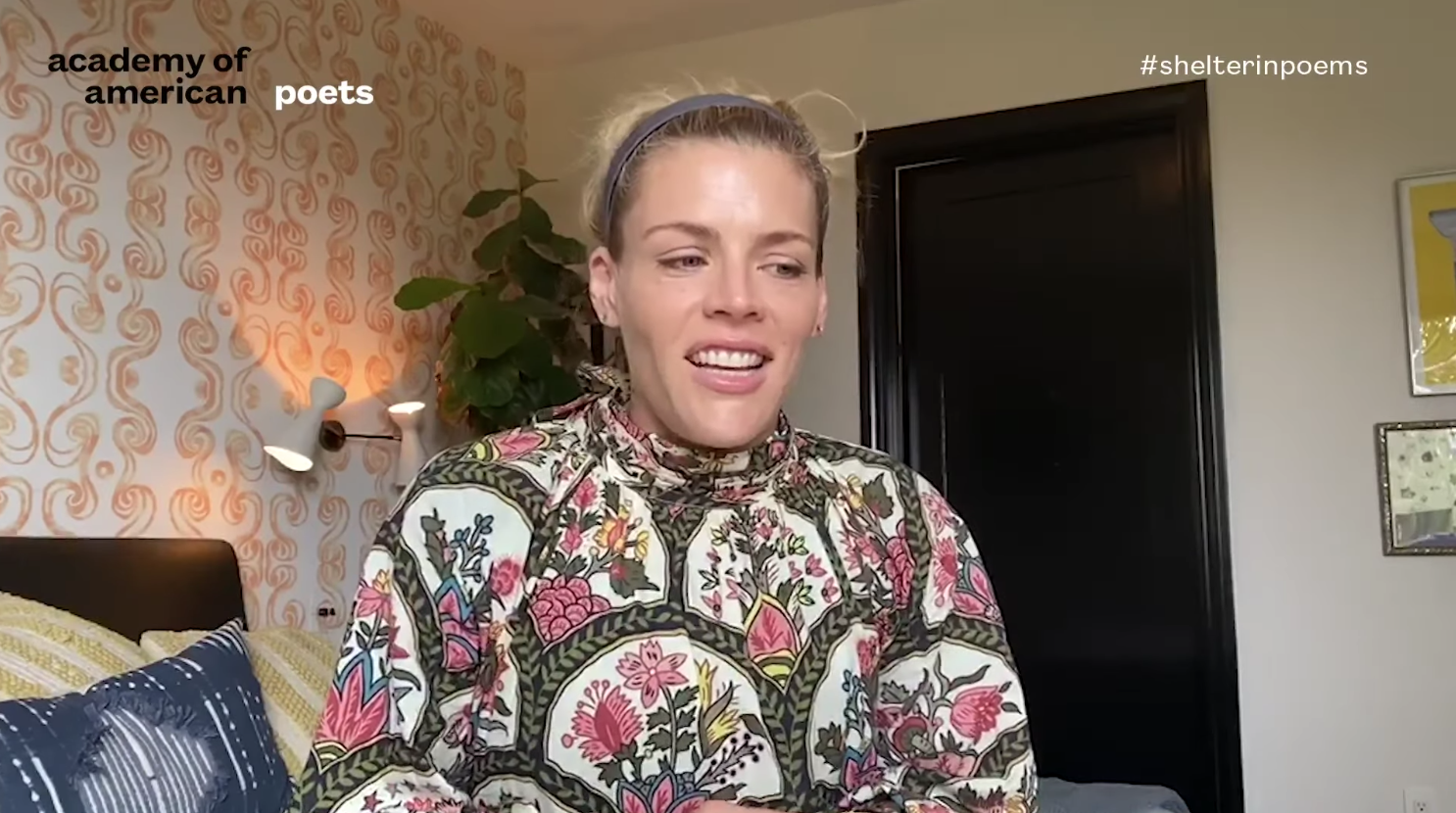Teach This Poem, though developed with a classroom in mind, can be easily adapted for remote learning, hybrid learning models, or in-person classes. Please see our suggestions for how to adapt this lesson for remote or blended learning. We have also noted suggestions when applicable and will continue to add to these suggestions online.

Watch Busy Philipps read "Thanks" here. Please note that the reading of the poem starts at 59:32.
-
Warm-up (quick write): Who or what are you thankful for?
-
Before Reading the Poem: Join with a partner, and together write a definition for the term gratitude. Then, join with another group and share your definitions. As a group, create one new definition. Share with the class. What do you notice about your classmates’ definitions?
-
Reading the Poem: Read the poem “Thanks” by W. S. Merwin silently. What do you notice about the poem? Annotate for any words or phrases that stand out to you or any questions you might have.
-
Listening to the Poem (enlist two volunteers to read the poem aloud): Listen as the poem is read aloud twice, and write down any additional words and phrases that stand out to you. You may also opt to watch and listen to the actress Busy Phillips read the poem here. (Teachers, note that the reading of the poem starts at 59:32.) Call back the lines that you like by saying these lines aloud with your classmates.
-
Small-group Discussion: Share what you noticed in the poem with a small group of students. How might you describe the speaker in the poem? Why?
-
Whole-class Discussion: What does the poem say about gratitude? Re-read the last two lines of the poem out loud: “we are saying thank you and waving / dark though it is.” How might the poem be different without these lines? Is there anything Merwin lists in the poem that you would have trouble or be unable to be thankful for?
-
Extension for Grades 7-8: A praise poem is essentially a poem of tribute, of gratitude, of honoring something or someone. Read more praise poems. Then, write your own praise poem.
-
Extension for Grades 9-12: Learn more about Merwin here and read more poems by Merwin here. Choose three of Merwin’s poems and create a presentation that explores thematic connections in these poems.
In her brief essay “Remembering W. S. Merwin,” written the day after his death, Jane Hirshfield writes, “William is sometimes described as a poet of the numinous and absence. But he was a poet of this world, which he loved, cultivated, and restored.” Read more.
